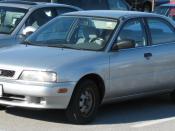Introduction
The main factors identified as being important to socialisation of children into sport and physical activity are family, peers, self-esteem (attitude), opportunity and social perceptions. Social development can have a profound effect on physical development. 'The most important means of learning societal rules and expectations is through social interaction, which is also true for human movement' (Payne and Isaacs 1995:60).
Family is the first major influence in our social and physical development. Children learn their behaviour through the influence of their family, and this extends to the type of physical development activities they are exposed to. 'The family can therefore consciously or subconsciously shape their children's movement behaviour' (Payne & Isaacs 1995:66). Children learn through play and 'play is often based on movement' (Payne and Isaacs 1995:65). However 'play' is not enough to develop effective fundamental motor skills. Children need opportunity to learn and practice these skills.
"Children who are socialised into motor experiences are more likely to learn motor skills...Children who are not exposed to motor experiences are less likely to master motor skills' (Haywood 1995:84). As children develop a sense of identity within a group, their play becomes more involved and includes more specific movements with games involving co-operation and mutual participation.
As children approach adolescence peer influence becomes stronger than family influence, 'As the child approaches adolescence, the family's influence generally begins to diminish and the peer group becomes an increasingly important social force' (Payne & Isaacs 1995:67). The approval of peers is more strongly sought and this in turn influences the type of participation a child will take in certain activities. Children's attitudes towards activity is based on these influences. ''A child's peers have the potential to reinforce the sport socialisation process begun in the family' (Greendorfer & Lewko 1978b, cited...

![[Portrait of Dizzy Gillespie, John Lewis, Cecil Payne, Miles Davis, and Ray Brown, Downbeat, New York, N.Y., between 1946 and 1948] (LOC)](https://s.writework.com/uploads/7/70016/portrait-dizzy-gillespie-john-lewis-cecil-payne-miles-davis-thumb.jpg)
